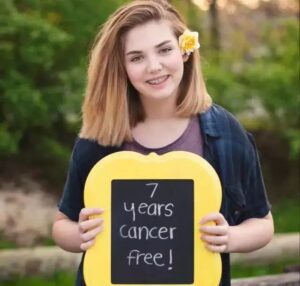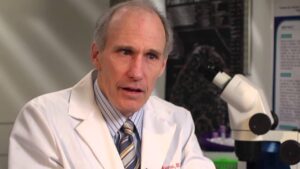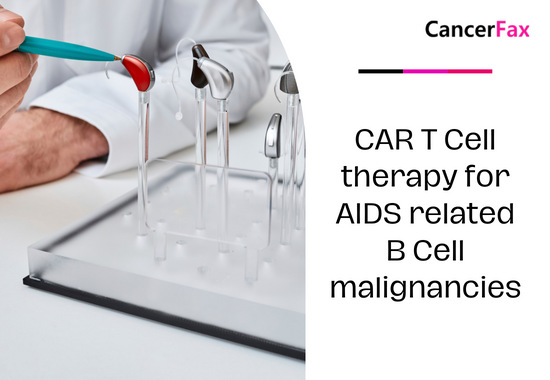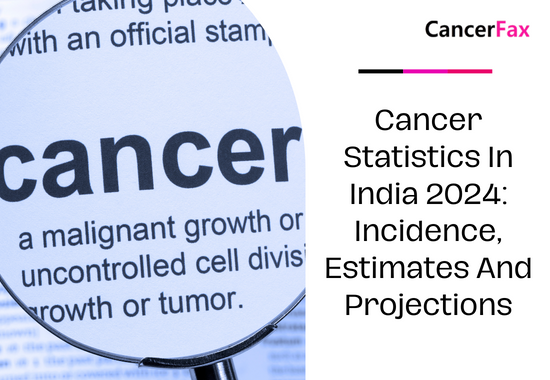July 2021: In June 2014, KITE Biotechnology Company, with only 19 employees, was listed on NASDAQ in the United States, and it took 130 million US dollars in one day! Just two months later, Juno Biotechnology had less than 20 employees The company announced that it has successfully raised 130 million US dollars in one lump sum, so Juno has raised more than 300 million in one year! These two small companies have no income and no listed drugs, so why are they so popular with investors and have money sent to them ? Because they have mastered a technology called CAR-T cell therapy, a technology that may cure cancer! Nowadays, the famous CAR-T is mentioned, almost everyone knows this, Immunotherapy has officially entered clinical applications.
FDA has approved two CAR-T therapies
Currently, two CAR T-cell therapies approved by the FDA, Yescarta and Kymriah, are used to treat leukemia and lymphoma, respectively.
These treatments have been shown to induce significant responses-even advanced cancer patients who survive only a few months can be completely eradicated, and in some cases respond strongly for months or even years.
For example, Emily, a leukemia girl, has been successfully cured by CAR-T cell therapy for 7 years. She has also become the spokesperson for this epic therapy and has been recorded in history.
The miracle of CAR T-Cell therapy

EMILY – LEUKEMIA GIRL 2019

Dr. CARL JUNE – DEVELOPER OF CAR T-CELL THERAPY
What is CAR T Cell therapy ?
This therapy isolates immune T cells from patients, and genetically engineer these cells in vitro, loading them with “chimeric antigen receptors” (CARs) that recognize cancer cell surface antigens. Subsequently, these modified cells undergo extensive expansion in the laboratory before being infused back into the patient. There, they were like a well-trained army equipped with the latest weapons to launch a relentless attack on cancer cells.
Bottleneck of CAR-T technology in solid tumors
However, the reason why it is effective in hematoma is because the tumor cells of hematoma have an ancestral target-CD19 (only stored in tumor cells but not in normal cells), we can easily rely on this target Lead CAR-T cells to find cancer cells and eliminate cancer. A third CAR T-cell therapy targeting an antigen called BCMA is expected to be approved for multiple myeloma (Bluebird) later this year. But there are not so obvious targets in solid tumors that exist only in cancer cells and not in normal cells.
Therefore, CAR-T cells have not been clinically effective in treating solid tumors. The medical community has always hoped that CAR T cells can develop new specific targets for more solid tumors.
Breakthrough in CAR-T therapy against solid tumors
At present, with the change of CAR-T algebra, CAR-T has obvious improvements in proliferation and cytokine release. This technology has finally broken the ice, and more and more clinical trials have begun to try to use CAR-T for solid tumors. Treatment, patients with advanced solid tumors ushered in a warm spring!
Typical antigen targets include:
Mesothelin, used to treat mesothelioma, pancreatic cancer, ovarian cancer, lung cancer; CEA, used to treat lung cancer, colon cancer, stomach cancer, breast cancer and pancreatic cancer; MUC-1, used to treat liver cancer, lung cancer , Pancreatic cancer, colon cancer, gastric cancer; GPC3, for the treatment of liver cancer; EGFRvII, for the treatment of gliomas, head and neck tumors; B7-H3, for the treatment of Ewing’s sarcoma, rhabdomyosarcoma, nephroblastoma, nerves Blastoma and medulloblastoma and brain stem tumors (DIPG), which are particularly difficult to treat;
PSMA, used for prostate cancer, etc .;
Claudin 18.2, used for gastric cancer, pancreatic cancer, etc.
01 Mesothelin CAR-T
Mesothelin is a cell surface glycoprotein that is highly expressed in various tumors, such as malignant pleural mesothelioma, pancreatic cancer, ovarian cancer and some lung cancers, and is lowly expressed on the surface of normal pleura, peritoneum and pericardium. CAR-T cells against mesothelin have potential antitumor effects.
The latest results of mesothelin CAR-T therapy published by the University of Pennsylvania at the American Society of Clinical Oncology in 2019 show that a total of 6 patients with refractory metastatic pancreatic duct adenocarcinoma were successfully enrolled, and all patients have received 2 or more Multiple treatments. These patients were infused with mesothelin CAR T cells 3 times a week for a total of 9 doses. The results showed that there were 2 patients with stable disease, and their progression-free survival time was 3.8 months and 5.4 months.
Therefore, this novel therapy is biologically active in patients with pancreatic cancer, and this study is still in clinical trials (NCT03323944).
02 – B7-H3 “Pan cancer” CAR-T
The team of Professor Majzner from Stanford Medical College has developed a new generation of CAR-T therapy for solid tumors. This special CAR T-Cell therapy is hailed as one of the most promising therapies because it targets a B7-H3, a high level of antigen present in many solid tumors, including some childhood cancers.
They screened 388 children’s tumors for testing. The results showed that B7-H3 was present in 84% of the samples (tumor cells). B7-H3 content was very high in 70% of the samples. These include Ewing’s sarcoma, rhabdomyosarcoma, nephroblastoma, neuroblastoma and medulloblastoma, as well as brain stem tumors (DIPG) that are particularly difficult to treat.
Subsequently, Professor Majzner and his team formed a new generation of CAR-T cells-B7-H3 CAR-T through gene editing technology.
Immediately afterwards, the researchers could not wait to start the experiment on mice. They transplanted human tumor cells into mice to form multiple mouse models of childhood cancer. These mouse models were given B7-H3 CAR T-Cell therapy and CD-19 CAR-T control group, respectively.
Everyone was stunned! Professor Majzner said: “The tumor has just disappeared.”
03, claudin18.2 CAR-T
In the past two years, solid tumors in our country have achieved world-renowned achievements, and the world’s first solid tumor CAR-T therapy targeting Claudin 18.2 has been developed.
Claudin18.2 (CLDN18.2) is a gastric-specific membrane protein and is considered a potential therapeutic target for gastric cancer and other cancer types. Based on this, Chinese researchers have developed the world’s first CAR-T cells against Claudin 18.2.
At the 2019 ASCO Annual Conference, clinical data updates of CAR-Claudin 18.2 T cells for gastric / pancreatic cancer showed that targeted claudin 18.2 CAR T cells were used to treat 12 cases of metastatic adenocarcinoma (7 cases of gastric cancer and 5 cases of pancreatic cancer). A serious adverse event, treatment-related death, or severe neurotoxicity occurred.
Among 11 evaluation objects:
1 case (gastric adenocarcinoma) completely relieved;
3 cases (gastric adenocarcinoma
2 cases of pancreatic adenocarcinoma, 1 case) partial remission;
5 cases were stable;
2 cases progressed;
The overall objective response rate was 33.3%.
Moreover, CAR-Claudin 18.2 T cells for preclinical research on gastric cancer have shown that CAR-T cells targeted to Claudin 18.2 can completely eliminate gastric tumors in mouse models without off-target toxicity.
The good news is that this trial has been pioneered by the Department of Gastroenterology and Oncology at Peking University Cancer Hospital, which is famous for gastrointestinal tumors in China, to evaluate autologous humanized anti-claudin 18.2 chimeric antigen receptor T cells in advanced solid tumors. Safety and efficacy. Entry criteria (partial)
1. Age 18 to 75 years, male or female;
2. Subjects with pathologically confirmed solid tumors (ie advanced gastric cancer, esophagogastric junction cancer, and pancreatic cancer) who have failed standard treatment;
3.Claudin 18.2 IHC staining positive;
4.Expected life> 12 weeks;
CAR T-Cell therapies on clinical recruitment
In addition to the above-mentioned breakthrough clinical research progress, major domestic hospitals are currently actively conducting CAR-T clinical research on various tumors.
| Test drug | Experiment name | Recruitment conditions | Experimental location |
| CAR-T cells | Cord-derived CAR-T cells in refractory / recurrent B-cell malignancies | B-cell lymphoma | Henan Cancer Hospital |
| BCMA CAR-T cells | BCMA Nanobody CAR-T cells in patients with refractory and relapsed multiple myeloma | Relapsed and refractory multiple myeloma | Shenzhen, Guangdong |
| CAR-T cells targeting HER2, mesothelin, PSCA, MUC1, Lewis-Y or CD80 / 86 | HER2 / mesothelin / Lewis-Y / PSCA / MUC1 / PD-L1 / CD80 / 86-CAR-T cell immunotherapy | Lung cancer | The First Affiliated Hospital of Sun Yat-sen University |
| CAR-T cells targeting EpCAM | Intraperitoneal infusion of EpCAM CAR-T cells in peritoneal metastasis of advanced gastric cancer (WCH-GC-CART) | Gastric cancer | West China Hospital of Sichuan University |
| CD19 / CD20 bispecific CAR-T cells | CAR-T cells derived from CD19 / CD20 bispecific Nanobody in B-cell lymphoma | ||
| GPC3 and / or TGF β targeting PC-T cells | GPC3 and / or TGF targeting PC-T cells | Hepatocellular carcinoma | The First Affiliated Hospital of Sun Yat-sen University |
| CAR-T / TCR-T cell immunotherapy | Autologous CAR-T / TCR-T cell immunotherapy for solid malignant tumors | Cancer of the esophagus, liver, stomach | |
| CAR-T cell immunotherapy | CAR-T cell immunotherapy | Hepatocellular carcinoma | Nanjing Gulou Hospital Affiliated to Nanjing University School of Medicine |
| Sarcoma-specific CAR-T cells | The fourth-generation safety engineering CAR for sarcoma | sarcoma | Shenzhen, Guangdong |
| Mesothelin-directed CAR-T cells | PC-regulated mesothelin-positive multiple solid tumors | Adult solid tumor | Chinese People’s Liberation Army General Hospital |
| MUC-1 CAR-T cell immunotherapy | Treatment of intrahepatic cholangiocarcinoma with MUC-1 CAR-T | Intrahepatic cholangiocarcinoma | The Second Affiliated Hospital of Zhejiang University |
| EGFR806 specific chimeric antigen receptor (CAR) T cells | EGFR-positive EGFR806 for recurrent or refractory pediatric central nervous system tumors | Central nervous system tumors in children | Seattle Children’s Hospital |
Patient requirements: Age 18-80 years old, expected to survive for at least 6 months (from the initial review of materials to completion of treatment takes 5-6 months), generally in good condition, able to live on their own.
Application process for CAT T-Cell recruitment
1. Preliminary review of materials: pathology report, image examination data within one month, recent liver and kidney function report, recent discharge summary submitted to the CancerFax Medical Department;
2. Face-to-face consultation: The patient himself brought all the case materials to the clinical trial recruitment hospital face-to-face consultation (case report, discharge summary, imaging report film);
3. Immuno histochemical detection: detecting tumor cell surface antigens EGFR, MUC1 and mesothelin, one of which is strongly positive (high expression) can apply for CAR T-Cell therapy.
Before the advent of cell therapy, solid tumors, including advanced gastric adenocarcinoma and pancreatic cancer, were usually treated with surgery and radiotherapy and chemotherapy. The incidence of gastric adenocarcinoma accounted for 95% of gastric malignancies, and pancreatic cancer was a common malignant tumor. The tumor with the highest degree, the median survival time and the 5-year survival rate are far lower than other tumors, known as “the king of cancer”.
However, most patients have local recurrence or metastasis after operation. In addition, this type of malignant tumor is not sensitive to radiotherapy and chemotherapy. Therefore, based on the current standard therapy, the treatment effect is not ideal, and the prognosis is extremely poor. The advent of immunotherapy will bring more hope and miracles of long-term survival to more advanced patients.
We firmly believe that after the introduction of a perfect cellular immune regulatory system, the country will open the door to cellular immunotherapy to benefit more cancer patients, and our country’s cellular immunotherapy will also be on the international stage.
You may like to read : CAR T-Cell therapy in China
FAQ’s on CAR T-Cell therapy
-
Is Car-T cell therapy available? What cancer is mainly treated
- A CAR-T cell immunotherapy has been approved by the US FDA for the treatment of leukemia and lymphoma. However, the treatment of solid tumors has not yet been approved and is currently in clinical trials
-
Can Car-T cells treat gastric cancer?
- Answer CAR-T for gastric cancer is currently undergoing clinical trials in Beijing Cancer. Patients are required to use tissue sections within one year to the experimental group for specific target detection. If the test result is positive, then
-
Is there a clinical trial of Car-T cells for gastric cancer ?
- A There are domestic clinical trials of CAR-T for gastric cancer, which is carried out at Peking University Cancer Hospital. Patients are required to have pathological tissue sections within one year for screening of specific targets. Currently enrolled patients
-
Can liver cancer patients participate in CAR-T clinical trials?
- Answer According to your main complaint; the clinical application of CAR-T immunotherapy for solid tumors of liver cancer is not approved. The principle of CAR-T is to extract immune cells, and then use in vitro culture

